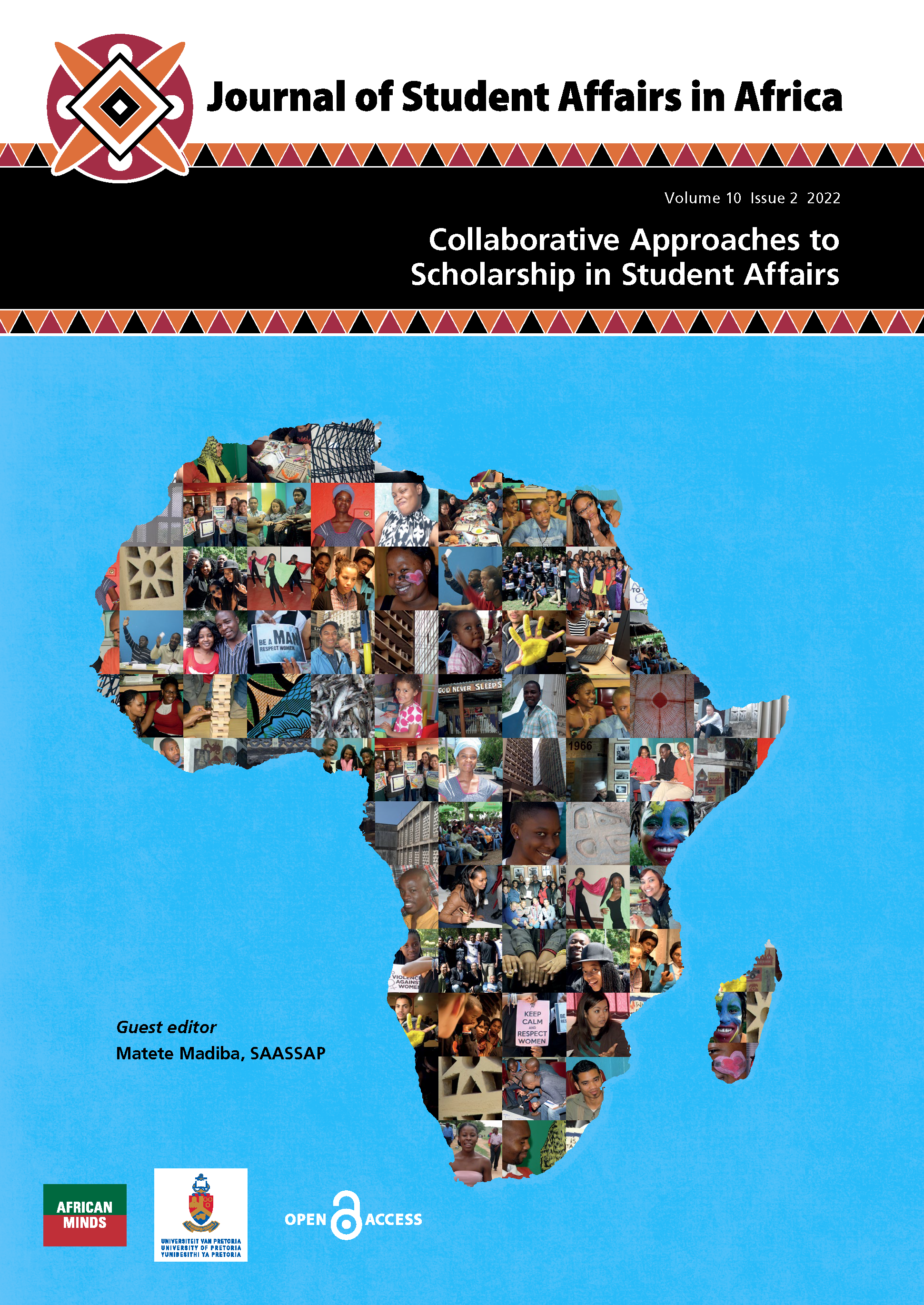Keeping up with changing times: Student leaders, resilience, fragility and professional development
DOI:
https://doi.org/10.24085/jsaa.v10i2.2554Keywords:
student leadership, resilience, methodological inventiveness, transformation, leadership trainingAbstract
The Fallist movements of 2015/16 brought about rapid changes in the South African higher education space, which required student leaders to rethink their role as agents of change and transformation. Student leaders contribute as stakeholders and decision-makers in student governance, and some find themselves in a context where their working and living spaces become increasingly entangled. This is a particularly challenging context, where they are encouraged to think beyond the professional-personal binary. In this paper, we focus on the challenges student leaders face as peer educators in both on- and off-campus residences. The resilience and fragility of student leaders, and how these play out in their experiences at the University of the Free State, will be highlighted. The importance of self‑reflection, resilience and fragility in professional development will be explored. Through a study that included survey data as well as arts-based methods, we engaged with student leader experiences in order to understand how they negotiated challenges in a space of transformation and constant change. We found arts-based research to complement and support the more conventional data-gathering process. Our paper thus highlights how methodological inventiveness can address new and different questions that arise in our rapidly changing space. Through this, we hope to zoom in on the complex micro-social experiences of student leaders who live in spaces of transformation. Student leaders are in a unique position as people who live and work in the student community, and their role as peer educators remains unexplored. In this paper, we hope to contribute to a body of knowledge that could foreground student leadership in relation to transformed pedagogy.
Downloads
Published
Issue
Section
License
Copyright (c) 2022 Liezl Dick, Marguerite, Pulane

This work is licensed under a Creative Commons Attribution-NonCommercial-ShareAlike 4.0 International License.
Authors who publish with this journal agree to the following terms:
Authors retain copyright and grant the journal right of first publication with the work simultaneously licensed under the Creative Commons Attribution Share-alike 4.0 International License that allows others to share the work with an acknowledgement of the work's authorship and initial publication in this journal.
Authors are able to enter into separate, additional contractual arrangements for the non-exclusive distribution of the journal's published version of the work (e.g., post it to an institutional repository or publish it in a book), with an acknowledgement of its initial publication in this journal.
Authors are permitted and encouraged to post their work online (e.g., in institutional repositories or on their website) prior to and during the submission process, as it can lead to productive exchanges, as well as earlier and greater citation of published work (See: The Effect of Open Access).


